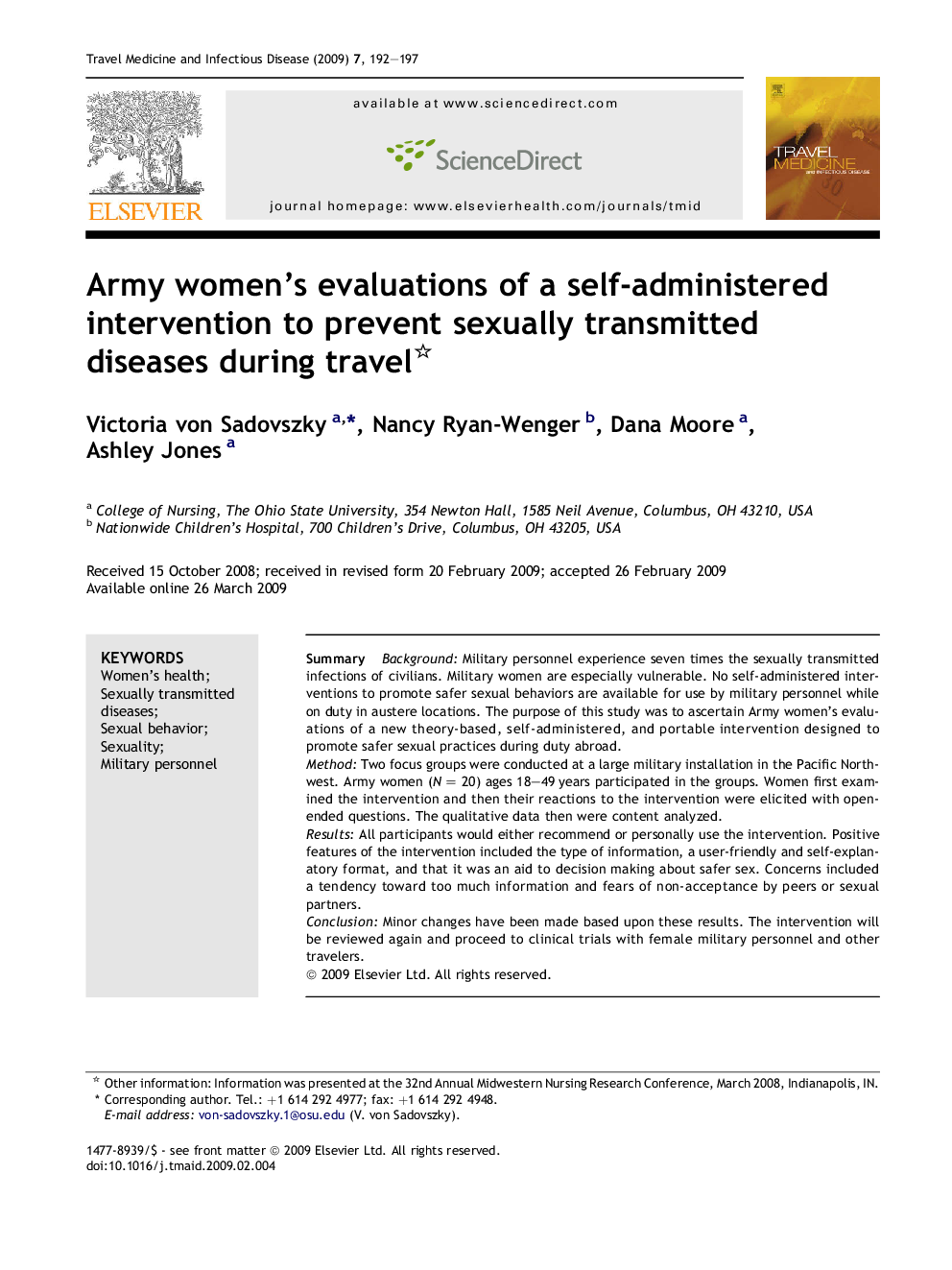| Article ID | Journal | Published Year | Pages | File Type |
|---|---|---|---|---|
| 3393436 | Travel Medicine and Infectious Disease | 2009 | 6 Pages |
SummaryBackgroundMilitary personnel experience seven times the sexually transmitted infections of civilians. Military women are especially vulnerable. No self-administered interventions to promote safer sexual behaviors are available for use by military personnel while on duty in austere locations. The purpose of this study was to ascertain Army women's evaluations of a new theory-based, self-administered, and portable intervention designed to promote safer sexual practices during duty abroad.MethodTwo focus groups were conducted at a large military installation in the Pacific Northwest. Army women (N = 20) ages 18–49 years participated in the groups. Women first examined the intervention and then their reactions to the intervention were elicited with open-ended questions. The qualitative data then were content analyzed.ResultsAll participants would either recommend or personally use the intervention. Positive features of the intervention included the type of information, a user-friendly and self-explanatory format, and that it was an aid to decision making about safer sex. Concerns included a tendency toward too much information and fears of non-acceptance by peers or sexual partners.ConclusionMinor changes have been made based upon these results. The intervention will be reviewed again and proceed to clinical trials with female military personnel and other travelers.
